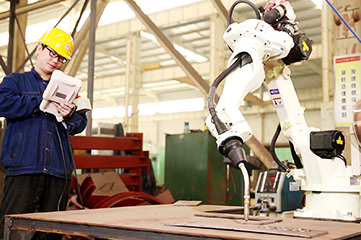Exploring the Role of Industrial Waste Heat Boilers in China's Energy Efficiency and Sustainability Efforts
The Role of Industrial Waste Heat Boilers in China's Energy Landscape
As China continues its rapid industrialization, the efficiency of energy use has become a critical focus for sustainable development. One innovative solution to address this challenge is the utilization of industrial waste heat boilers. These systems not only enhance energy efficiency but also contribute significantly to reducing carbon emissions, aligning with China’s environmental goals.
Understanding Waste Heat Recovery
Industrial processes often generate substantial amounts of waste heat, which, if not captured and utilized, is typically lost to the atmosphere. Such processes include powering turbines, chemical production, metal processing, and cement manufacturing. By implementing waste heat recovery systems, industries can capture this excess heat and redirect it for productive use, such as generating steam or electricity.
Waste heat boilers play a pivotal role in this recovery process. They are designed to convert waste heat from industrial processes into usable energy. The operation typically involves transferring the waste heat to water or other fluids, which is then converted into steam. This steam can be utilized for various applications, including heating, powering turbines for electricity generation, or even driving mechanical processes.
Advantages of Industrial Waste Heat Boilers
1. Energy Efficiency By capturing and reusing waste heat, industries can significantly enhance their overall energy efficiency. This not only lowers energy costs but also maximizes the utilization of input resources.
2. Cost Savings The implementation of waste heat boilers can lead to substantial cost savings over time. Industries can reduce their reliance on purchased steam or electricity, resulting in lower operational expenses.
3. Environmental Benefits The use of waste heat boilers plays a crucial role in reducing greenhouse gas emissions. By increasing energy efficiency and minimizing waste, industries align with China’s commitment to achieving carbon neutrality by 2060.
china industrial waste heat boiler

Challenges in Implementation
Despite the advantages, the deployment of industrial waste heat boilers in China faces several challenges. One major barrier is the initial investment required for installation and integration into existing industrial processes. Many companies may hesitate to invest in new technologies without a clear understanding of the return on investment.
Additionally, there can be technical challenges in retrofitting existing systems to incorporate waste heat recovery solutions. Industries must ensure that their operations are flexible enough to accommodate the integration of waste heat boilers and that adequate training is provided for personnel.
Future Outlook
As China moves towards a greener energy future, the significance of waste heat recovery systems, particularly industrial waste heat boilers, is set to increase. The government is likely to continue promoting policies that incentivize energy efficiency and the incorporation of sustainable technologies in industrial practices.
Future advancements in technology could also lead to more efficient and cost-effective waste heat boilers, making them accessible to a broader range of industries. Partnerships between the government, research institutions, and industry players will be crucial in driving innovation and adoption in this sector.
In conclusion, industrial waste heat boilers represent a vital component of China’s efforts to enhance energy efficiency, reduce emissions, and promote sustainable industrial practices. By optimizing the use of waste heat, industries not only gain economic benefits but also contribute to a more sustainable and environmentally friendly future. The journey toward energy efficiency in China is ongoing, and waste heat recovery solutions will undoubtedly play a leading role in shaping this future.
-
Electric Steam Boiler Manufacturers: Efficient Industrial SolutionsNewsAug.15,2025
-
Leading Electric Steam Boiler Manufacturers for IndustryNewsAug.14,2025
-
Buy Waste Heat Boilers: Custom, Efficient & Affordable SolutionsNewsAug.13,2025
-
Electric Steam Boiler Manufacturers | Industrial Power & EfficiencyNewsAug.12,2025
-
Electric Steam Boiler Manufacturers: Efficient & Reliable SolutionsNewsAug.11,2025
-
China Steam Boiler Price: Efficient Industrial Systems & BurnersNewsAug.10,2025

